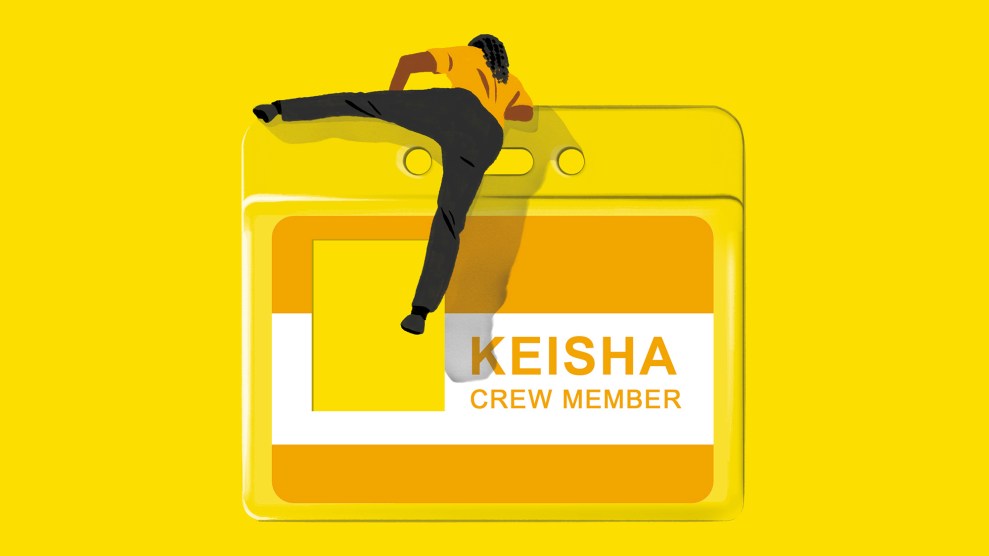
Few companies are more revered among young, ambitious business types than McKinsey & Company. It is the Harvard of management consulting firms, and many in the business world see having McKinsey on their résumés as a door-opener for the rest of their careers. Jobs at McKinsey are quite competitive, owing to both the prestige and the relatively high pay, which approaches six figures for even the most entry-level workers—business analysts straight out of undergrad.
I spoke with a woman who’d worked at the company as a business analyst for two years right after college graduation. (She requested anonymity out of concern for professional repercussions.) The pay, she said, was transformative. Making $85,000 per year, she was able to pay off her debts. (Current pay for business analysts is reportedly $100,000 per year, before bonuses.) But the work also came with grueling, relentless hours, harsh feedback, 2 a.m. Zoom calls, and an expectation that workers keep up this frenetic pace at all costs—a culture that she credited with all but ensuring the lack of diversity in the firm’s higher ranks.
Undeniably, I was extremely fortunate to be getting paid what I was being paid right out of college. And I was able to pay off my debts, which was huge. I did not expect to do that within two years. But in terms of the work itself—there is so much to say.
There are a couple of things that stick out to me. The first is the hours: A really light week for me would be 60 hours, but what was expected was 80 hours. A crazy week would be 100 hours. Every two weeks, you had to fill out this pulse survey for your team. I had a friend on a different team, and she was laughing because her leader was like: “Oh my gosh, everybody wrote that they only worked 60 hours these last two weeks. That’s the lowest I’ve ever seen at McKinsey. Great job, guys.” There is just no expectation of normal working hours.
Once COVID hit, it became even worse. Because before COVID, when we weren’t working remote, we would have fly time—time when we were in the air and therefore harder to contact because we were traveling between our client’s site and home base. Additionally, because we were all in person, people were more aware of human beings. So there’d be things like regular breaks for lunch or dinner. The typical day was much more like you’d show up to the client site at 7 a.m., maybe get a half-hour break for lunch—but everybody would be working during lunch—then work through 7 or 8 p.m., get dinner as a team for an hour, maybe work out for an hour, and then work for three to four more hours on a hard day or one to two more on a normal day.
But with COVID, I couldn’t go have dinner without being in deep fear that I was going to get three frantic Zoom calls during that time. I would get Zoom calls as late as 2 a.m. to completely redo models for the next morning. I’d get Zoom calls after 8 p.m. most nights—after 10 p.m., maybe once or twice a week.
I was completely isolated in my apartment. I was not really able to leave, because I would never know if I might get a Zoom call or something while I was on a walk. I developed extreme dependency on nicotine and marijuana. I would anxiously chain-smoke my Juul during the day as I was on Excel. I know that that’s so common right now among business analysts. We’re all like, “What are we going to do when we’re back in the office?” I spent $20 a week on Juul pods. I spent approximately $150 a month on marijuana, and I probably spent about $50 a month on wine. I was probably drinking like half a bottle a night, about two bottles to myself during the work week.
I had gone to therapy consistently for years before joining the firm; it was just part of how I took care of myself. And I had to actually stop for the first time when I joined the firm; the hours were so unpredictable that I didn’t even feel comfortable consistently blocking off one hour during the work week and saying, “Hey, I will be able to come back online later,” or “I should not have meetings on my calendar during this hour.”
What I found frankly extremely frustrating was that I would be running within five minutes to kind of throw together a lunch for myself, so I could eat something during the day between back-to-back-to-back meetings and models. And I would literally see my partners being served by their wives during their lunch breaks on their Zooms. Because most of the partners were men. That’s not always the case. But, pretty classically. McKinsey has done great in terms of diversity in recruiting at the junior levels. But I think in part because of the lifestyle and the expectations, that immensely drops off as you go more and more senior.
At McKinsey, it’s best practice to give feedback to the business analyst on a weekly or biweekly basis. So take a step back: Imagine how harrowing it is to have a new boss as often as every two weeks and knowing that you are going to get feedback from them on your performance. That could be just a dataset of 10 days. And that would be reflected in your review for that year, which would then impact your salary or your status. And they’re all weighed equally. So I was having feedback with one particular manager on a project, and he was giving me feedback that amounted to “You will never succeed at the firm. You’re not doing good enough right now. You’re not meeting the bar. And if you don’t meet the bar now you’re going to just circle down the drain.” He said—these were his actual words—“Everybody here is secretly working weekends and just not saying it so that they look better. But if you don’t work weekends, you’re gonna fail here.”
It was distressing. So I started to tear up. I felt so horrible at the time; I had already been so chastised that I wanted to save face. So I was like: “Oh, I’m so sorry. I don’t know why I’m crying.” And he goes: “Oh, it’s no problem. My wife cries all the time.” His wife, I should note, also works at the firm.
So I had to quit.
McKinsey has a list of values that is up on the website, and it’s referenced constantly within the firm. And this includes things like—I’m paraphrasing—we are a non-hierarchical organization to we are a firm with a dual purpose of both serving the client as best as possible, as well as developing the greatest leaders of tomorrow. And in a lot of ways I think that the macro levels of McKinsey accomplishes those things. But the individual bosses and managers do not and can be so focused on, frankly, their own success within the firm that they completely ignore those values, and will often be rewarded for that.
This story is part of our Bad Bosses project, a reported collection of accounts from workers about their terrible bosses and the system that creates them. You can read more about the entire project and find every story here. Annotations—highlighted throughout—can be clicked for further context and comment from other parties. Got your own bad boss story? Send us an email.

















